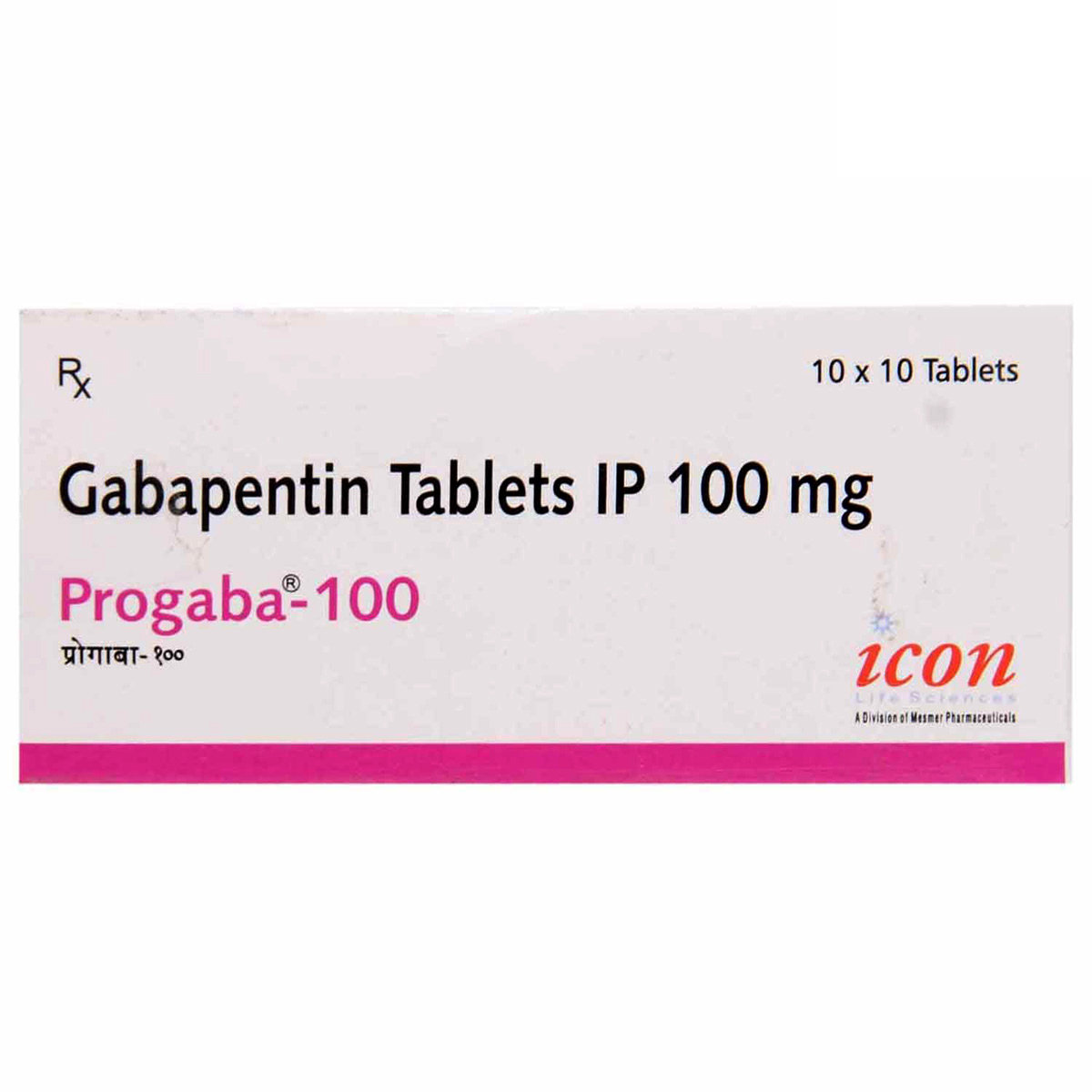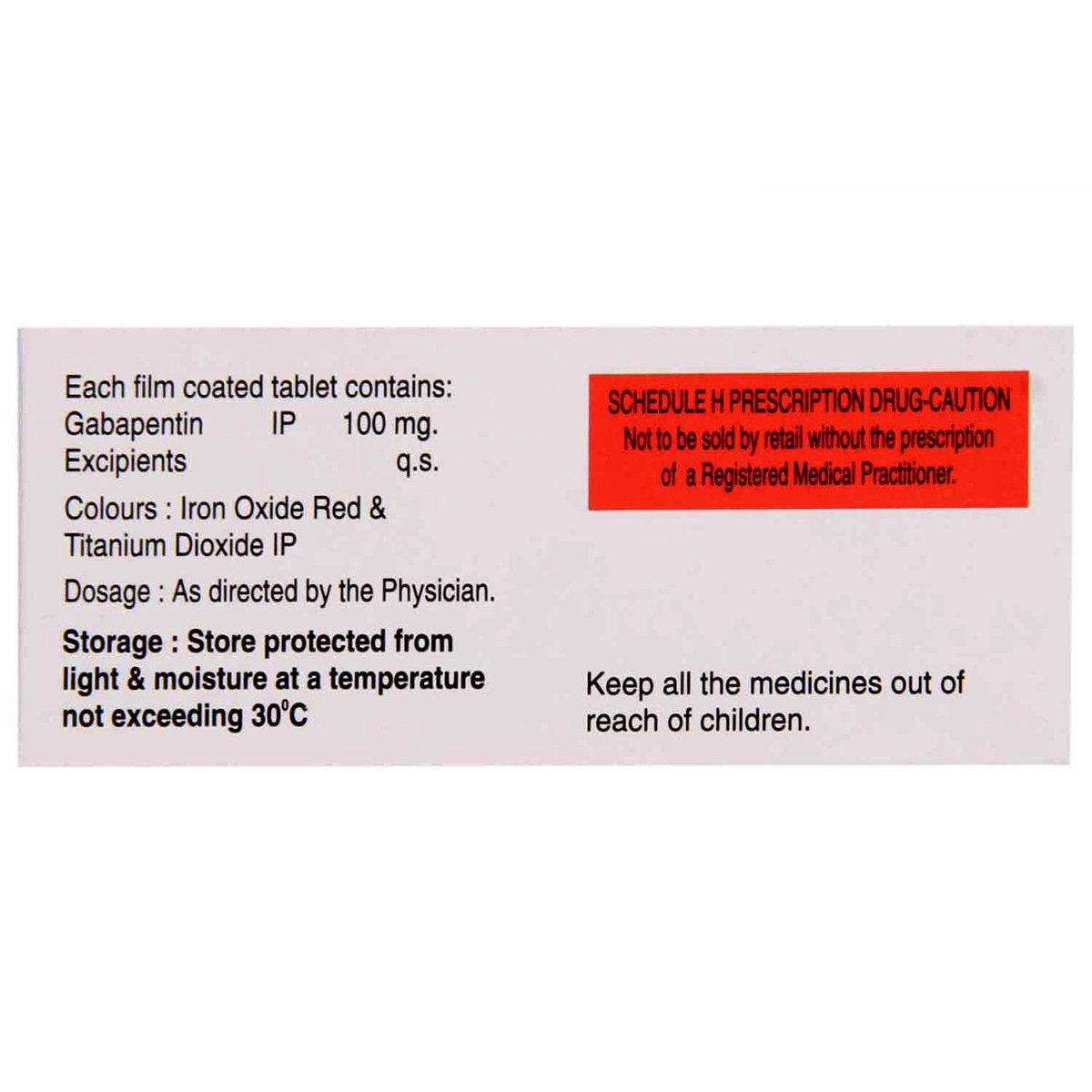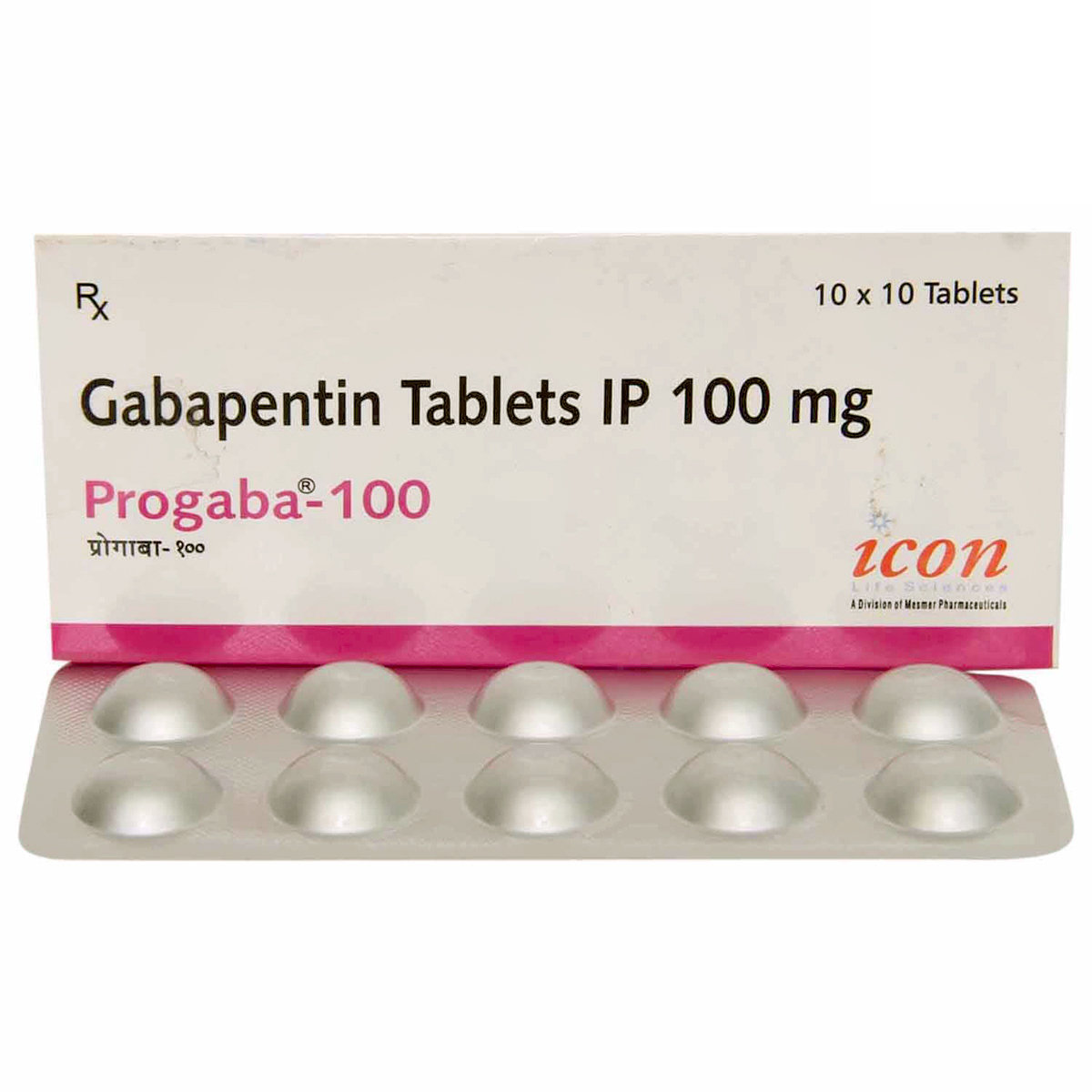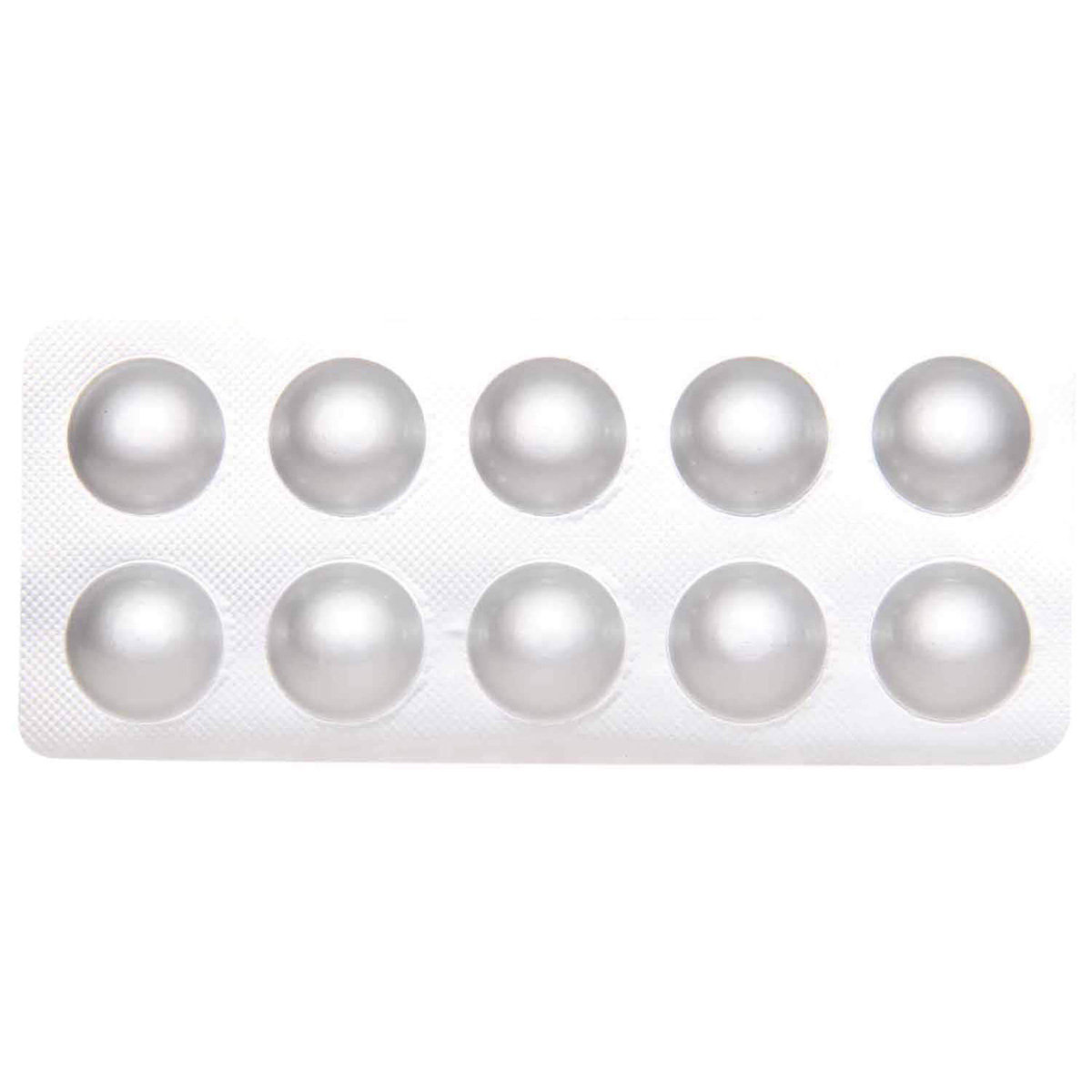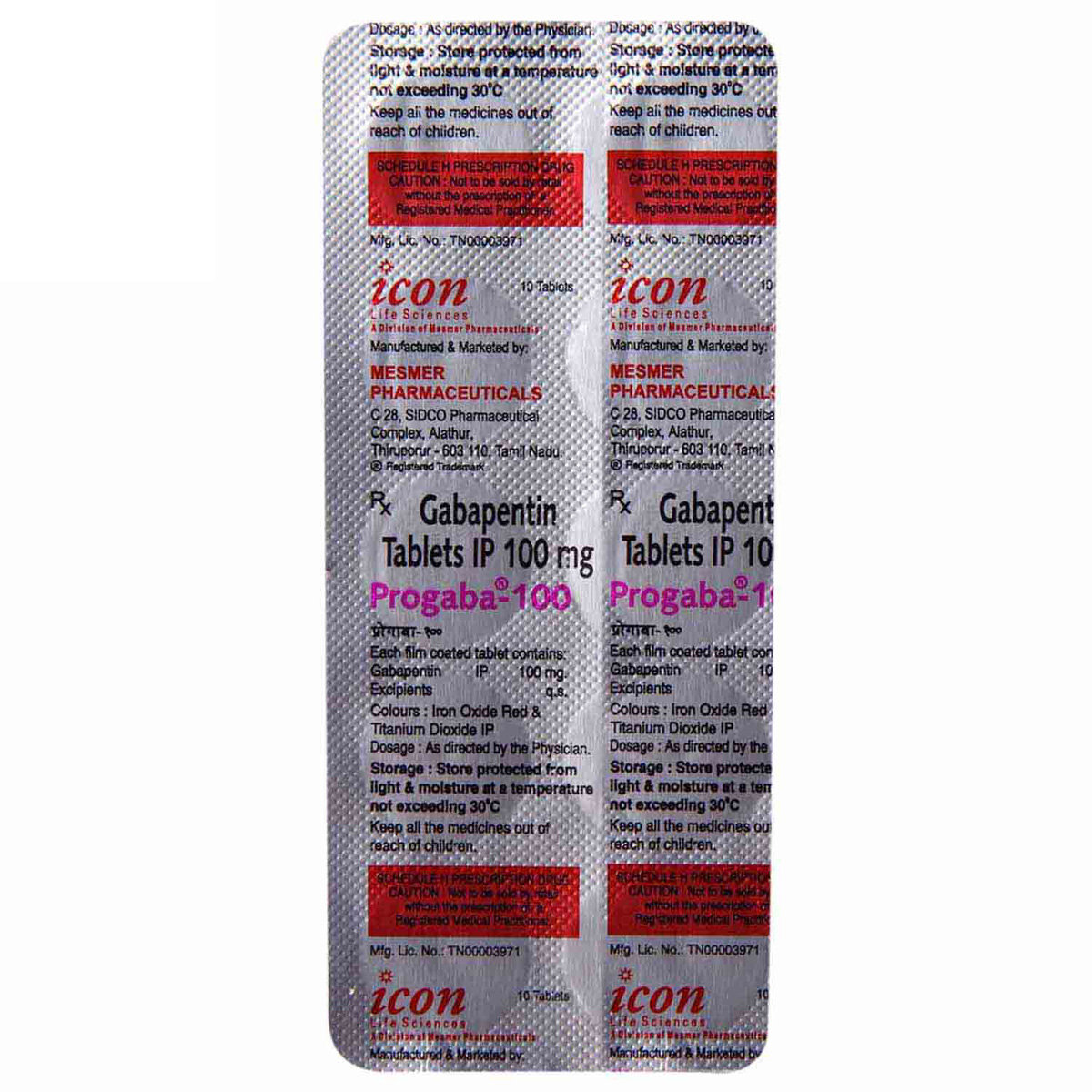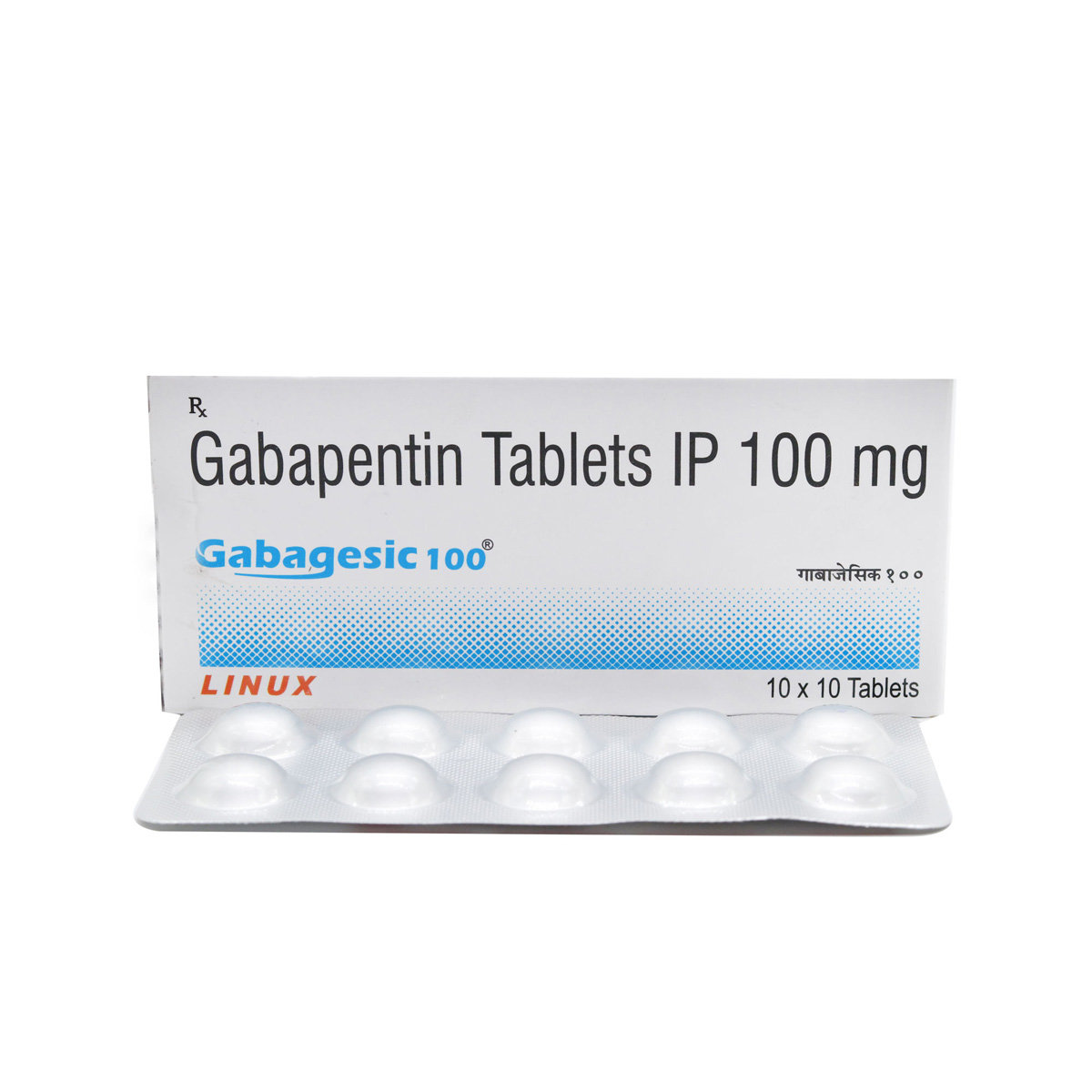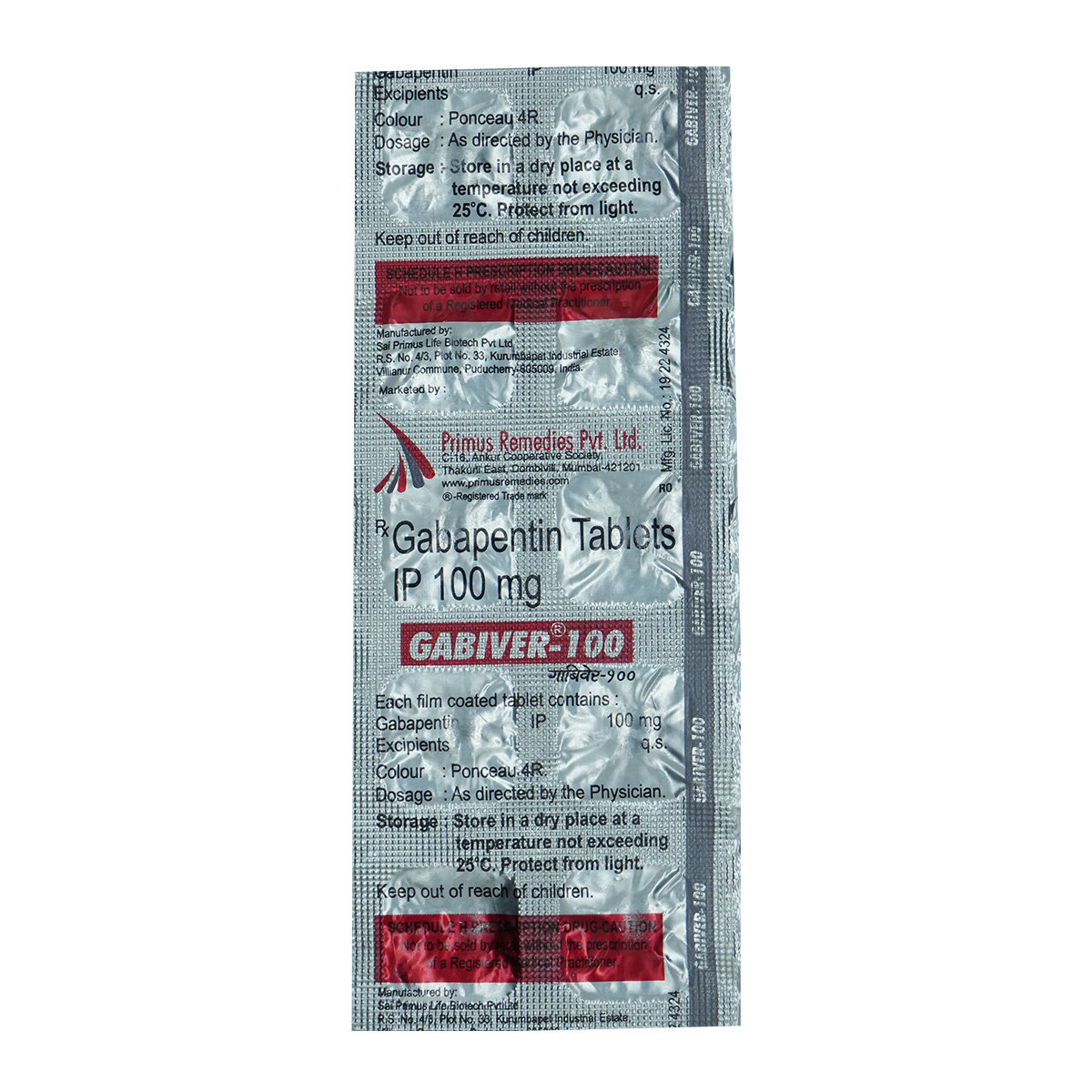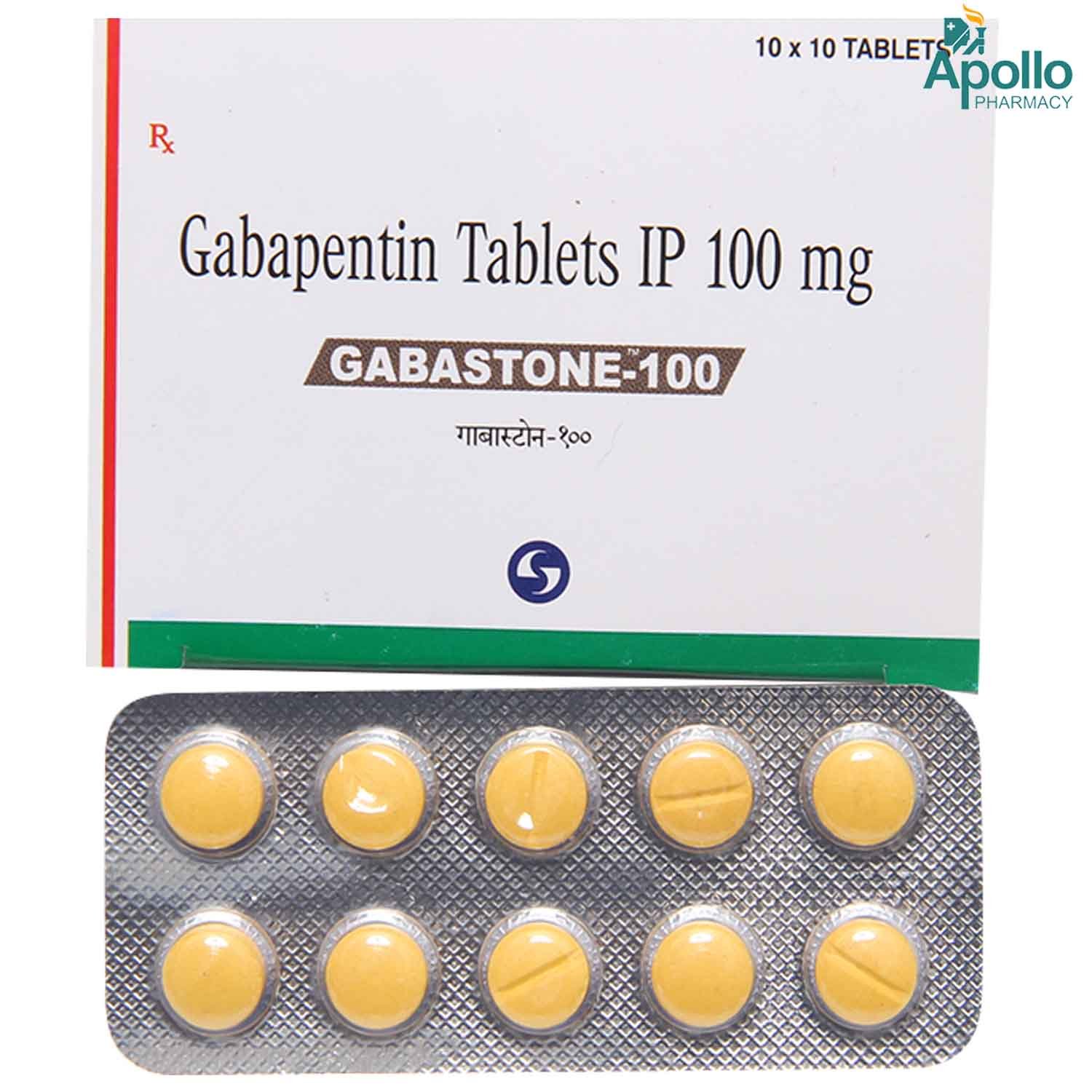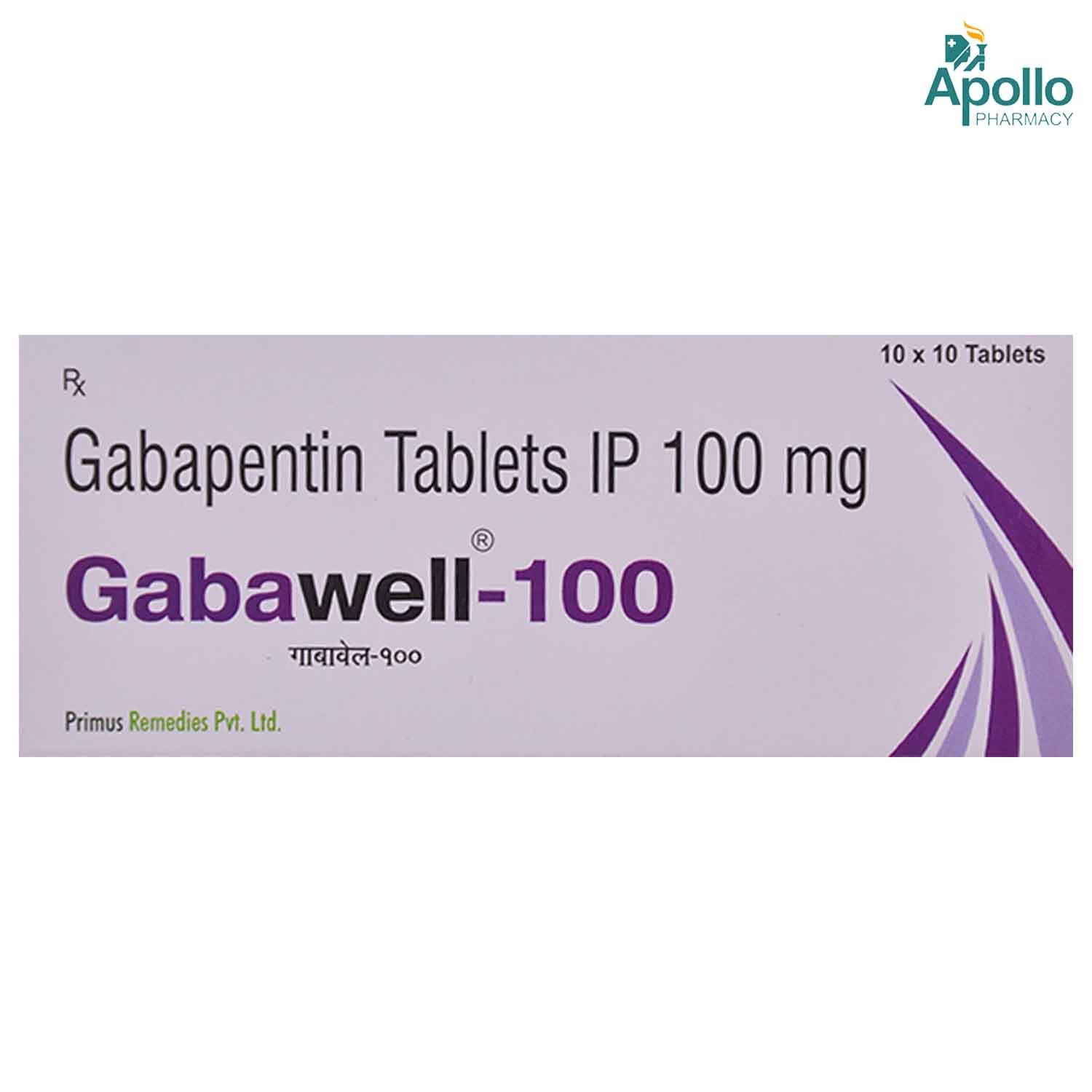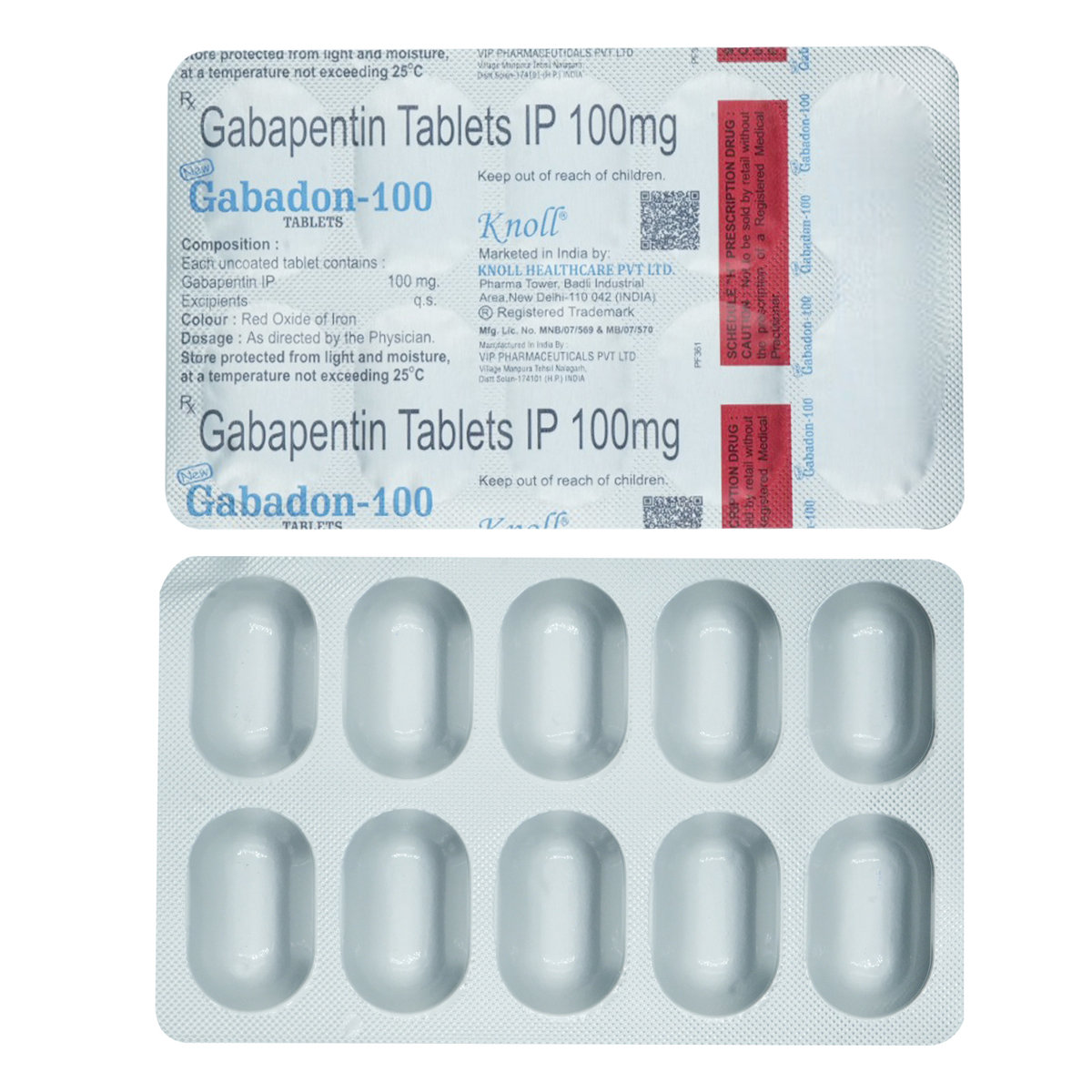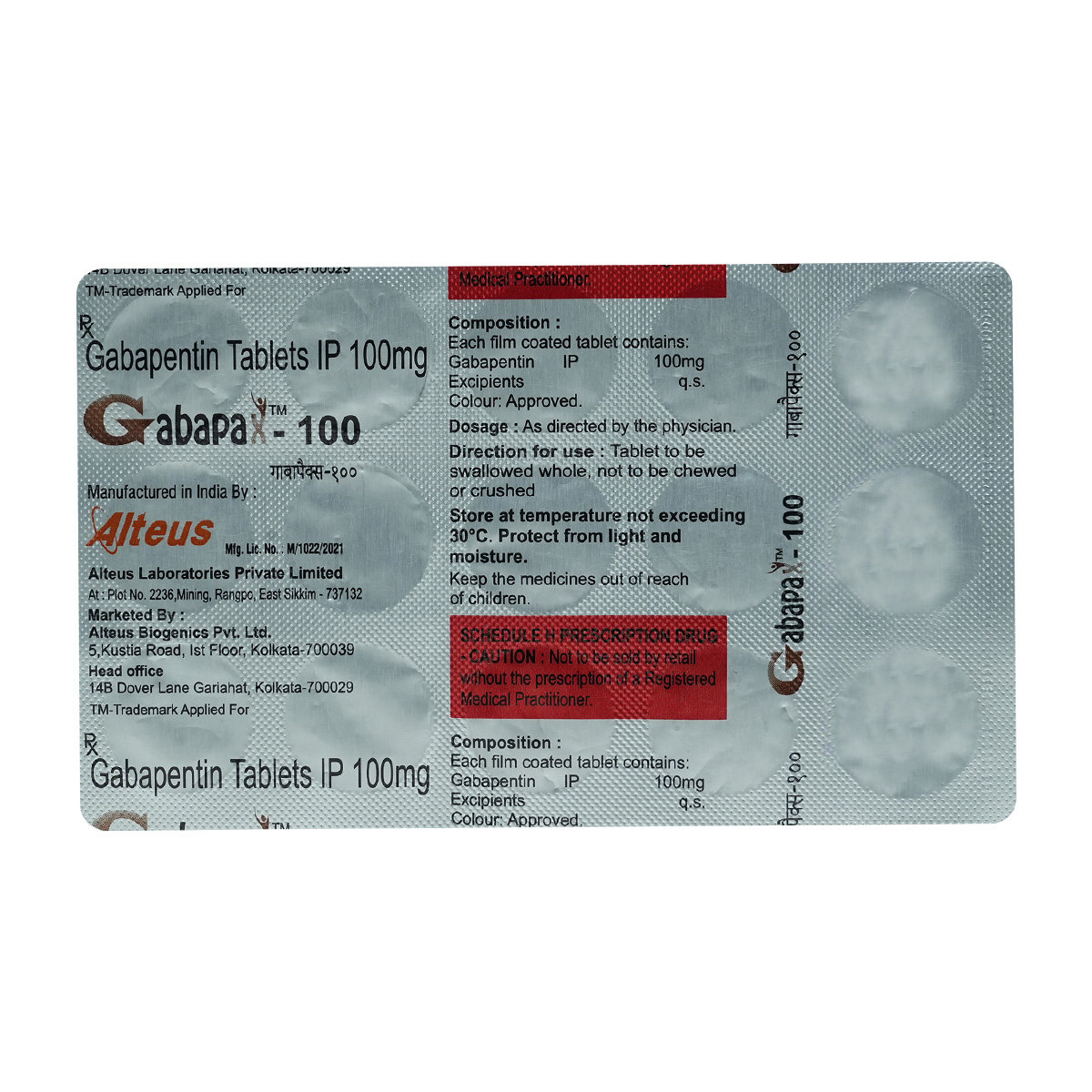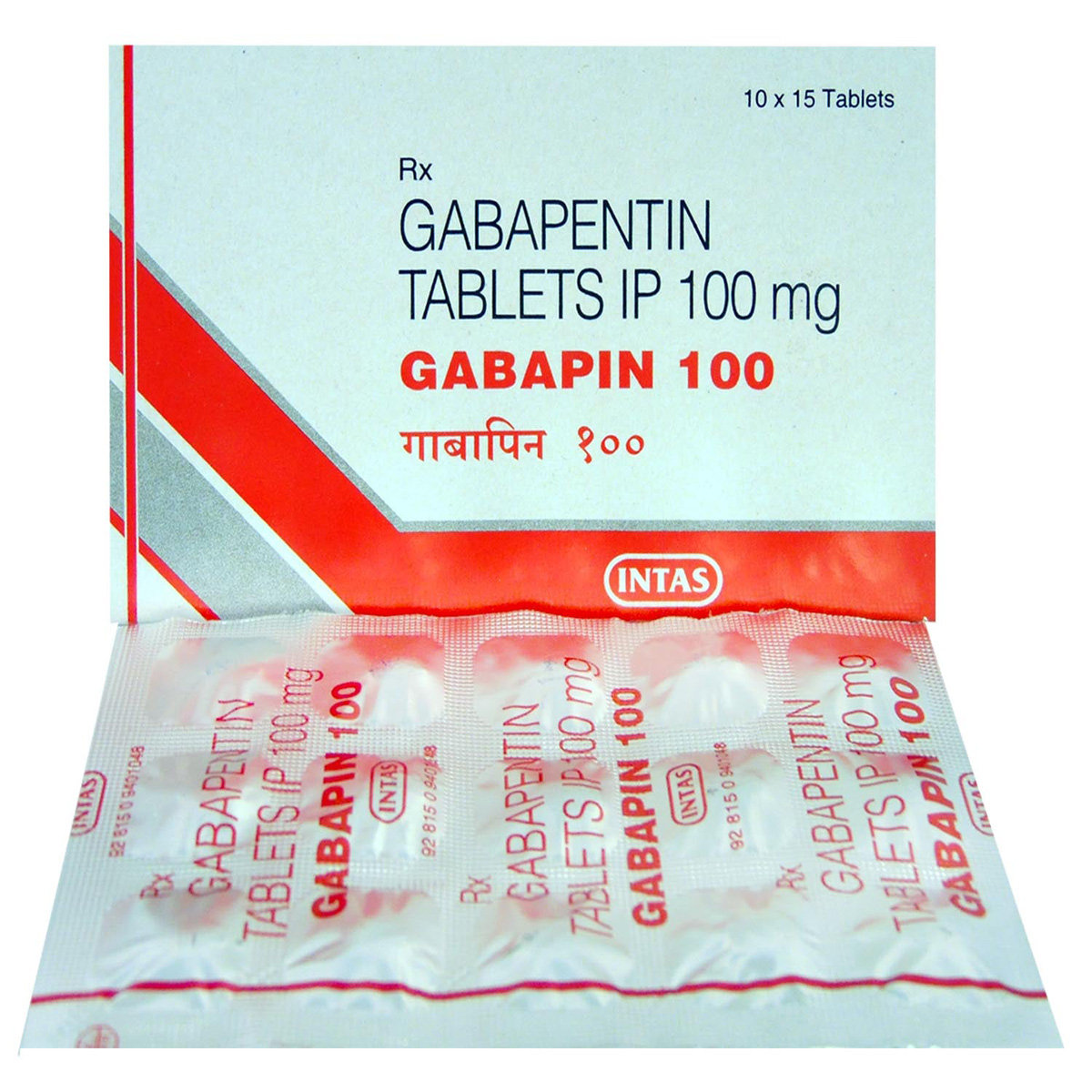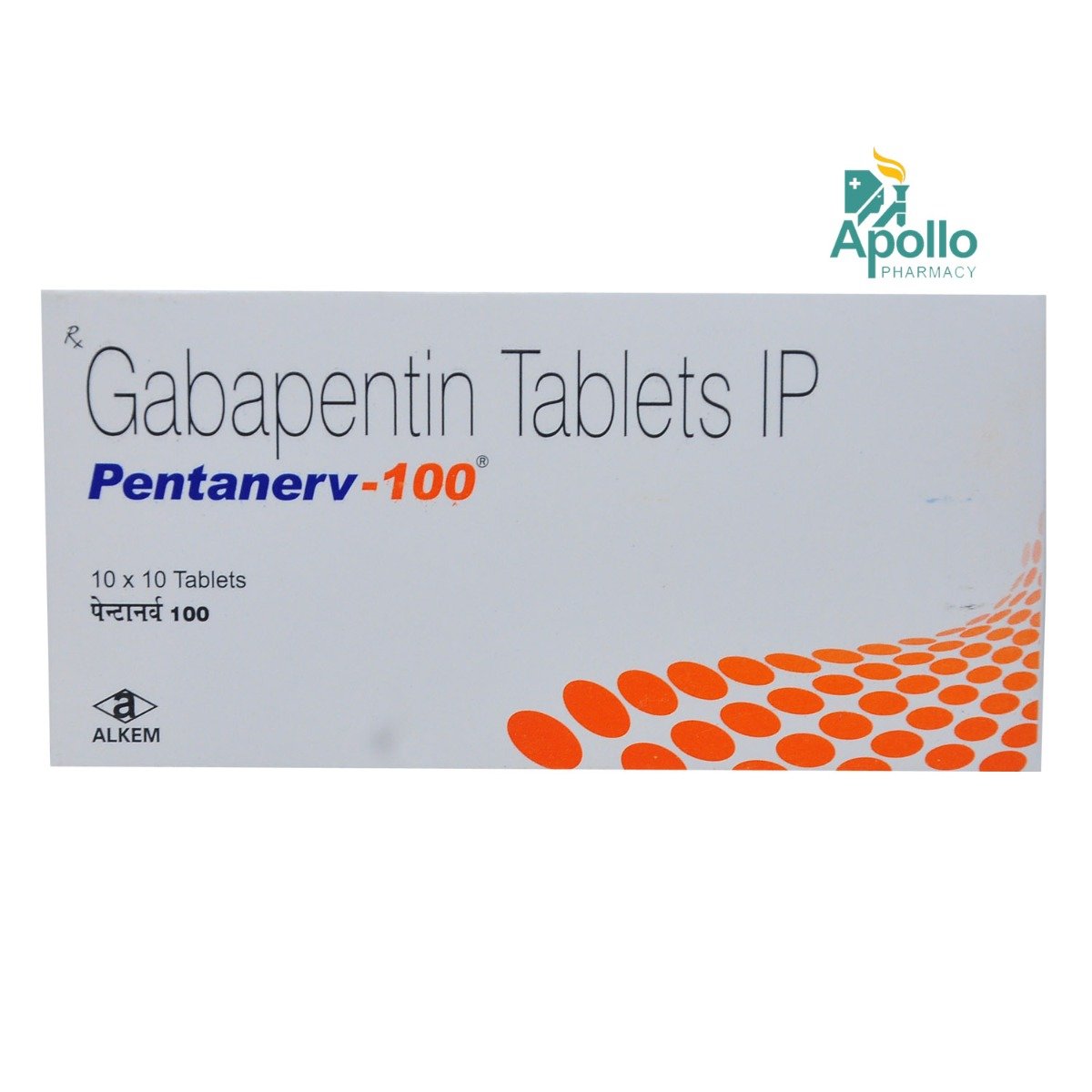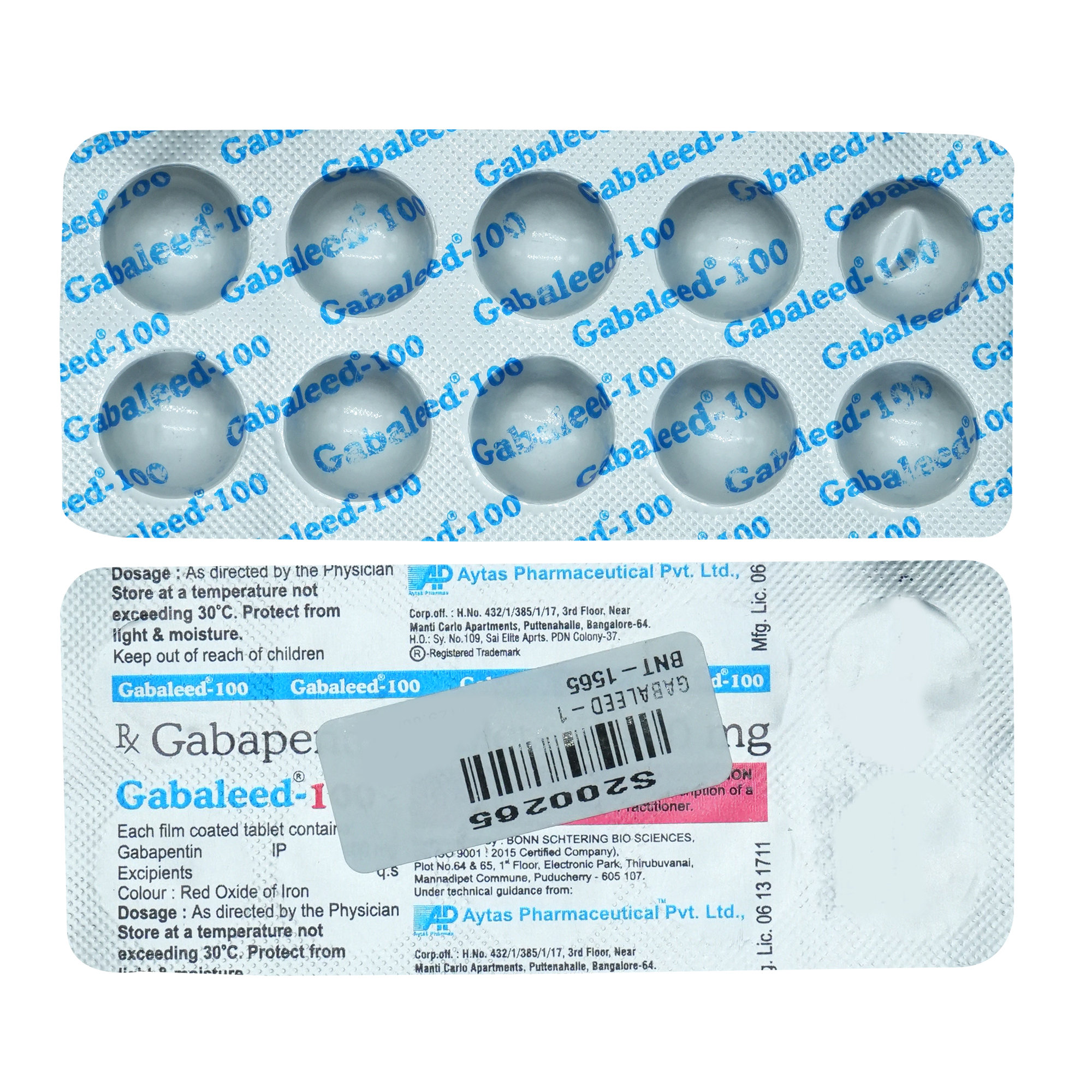Progaba 100 mg Tablet 10's
MRP ₹79.5
(Inclusive of all Taxes)
₹11.9 Cashback (15%)
Provide Delivery Location
Online payment accepted
 Prescription drug
Prescription drugWhats That
Composition :
Manufacturer/Marketer :
Consume Type :
Expires on or after :
Return Policy :
About Progaba 100 mg Tablet
Progaba 100 mg Tablet belongs to a group of medications called anticonvulsants used to manage or prevent neuropathic pain and epilepsy. Besides this, occasionally used to treat migraine headaches. Neuropathic pain is a chronic progressive nerve disease that causes nerve pain. On the other hand, epilepsy is a nervous system disorder that occurs due to disturbed nerve cell activity in the brain.
Progaba 100 mg Tablet contains Gabapentin' which works by binding to the specific site on voltage-gated calcium channels; this helps in relieving nerve pain and lowers the risk of seizures. Besides this, it also decreases the number of pain signals sent out by damaged nerves in the body.
Progaba 100 mg Tablet is available on prescription. It comes as capsules, tablets, and a liquid that you drink. Progaba 100 mg Tablet can be taken by adults and children aged six years and over. Take Progaba 100 mg Tablet exactly as directed. Please do not take more or less of it or take it more often than prescribed by your doctor. Sometimes, you may experience some side effects, including feeling sleepy, tired and dizzy. Most of these side effects do not require medical attention and will resolve gradually over time. However, you are advised to talk to your doctor if you experience these side effects persistently.
To treat your condition effectually, continue taking Progaba 100 mg Tablet for as long as your doctor has prescribed. Please do not stop taking Progaba 100 mg Tablet without consulting your doctor as it could cause withdrawal symptoms. Do not take Progaba 100 mg Tablet if you are pregnant or breastfeeding unless prescribed by the doctor. Progaba 100 mg Tablet may cause drowsiness and dizziness, so drive if you are alert. Progaba 100 mg Tablet should not be given to children unless prescribed. Avoid consuming alcohol along with Progaba 100 mg Tablet as it could lead to increased dizziness and sleepiness. Keep your doctor informed of your health condition and medicines to rule out any side effects.
Uses of Progaba 100 mg Tablet
Directions for Use
Key Benefits
Progaba 100 mg Tablet belongs to a class of medications called 'anticonvulsants' used to prevent neuropathic pain (pain due to damaged nerves), fibromyalgia (musculoskeletal pain), and epilepsy (fits). It works by binding to the specific site on voltage-gated calcium channels and blocking the action of overexcited channels; this helps in relieving nerve pain and lowers the risk of seizures. Overall it reduces nerve pain by interfering with pain signals travelling through the damaged nerves and the brain.
Storage
Drug Warnings
Do not take Progaba 100 mg Tablet if you are allergic to any of its contents. Inform your doctor before taking Progaba 100 mg Tablet if you have symptoms of suicidal ideation or behaviour, drug addiction, chronic pulmonary insufficiency, muscle weakness, heart problems, liver/kidney impairment. Please do not stop taking Progaba 100 mg Tablet without consulting your doctor as it could cause withdrawal symptoms. Do not take Progaba 100 mg Tablet if you are pregnant or breastfeeding unless prescribed by the doctor. Avoid driving and consuming alcohol along with Progaba 100 mg Tablet it could lead to increased dizziness and sleepiness. Consult your doctor immediately if you experience suicidal tendencies. Avoid taking St John's Wort herbal supplement (antidepressant) while taking Progaba 100 mg Tablet as it might cause increased dizziness and sleepiness. Keep your doctor informed about your health condition and medicines to rule out any side effects.
Drug-Drug Interactions
Drug-Drug Interactions
Login/Sign Up
Combining Progaba 100 mg Tablet with Esketamine can increase the risk of side effects.
How to manage the interaction:
Although taking Progaba 100 mg Tablet and Esketamine together can evidently cause an interaction, it can be taken if a doctor has suggested it. Consult a doctor if you experience any symptoms such as drowsiness, confusion, difficulty concentrating, and impairment in thinking, judgment, reaction speed, and motor coordination. Do not stop using any medications without a doctor's advice.
Taking fentanyl with other drugs that cause central nervous system depression, such as Progaba 100 mg Tablet, might result in an increased risk of adverse effects.
How to manage the interaction:
Although combining Fentanyl and Progaba 100 mg Tablet may cause an interaction, they can be used if advised by your doctor. Consult your doctor immediately if you feel drowsiness, trouble breathing, dizziness, or confusion. If you have any of the above symptoms, it is advised not to drive or use any hazardous machinery. Do not stop taking any medication without consulting your doctor.
Combining Meperidine with Progaba 100 mg Tablet can increase the risk of CNS depression.
How to manage the interaction:
Co-administration of Pethidine with Progaba 100 mg Tablet can possibly result in an interaction, but it can be taken if a doctor has advised it. Do not stop using any medications without a doctor's advice.
Combining Remifentanil with Progaba 100 mg Tablet can increase the risk of side effects.
How to manage the interaction:
Taking Progaba 100 mg Tablet with Remifentanil together can possibly result in an interaction, but it can be taken if a doctor has advised it. If you notice any symptoms like trouble breathing, dizziness, or trouble focusing, make sure to contact a doctor right away. Do not discontinue any medications without consulting a doctor.
Co-administration of Buprenorphine and Progaba 100 mg Tablet may cause central nervous system depression and lead to serious side effects (respiratory distress -build-up of fluid in the air sacs of the lungs).
How to manage the interaction:
Although there is a possible interaction between Progaba 100 mg Tablet and Buprenorphine, you can take these medicines together if prescribed by a doctor. However, if you experience shortness of breath, fast heart rate, fast breathing, extreme tiredness, fever, cough with phlegm, or shallow breaths, consult the doctor immediately. Do not discontinue any medications without a doctor's advice.
Combining Sufentanil with Progaba 100 mg Tablet can increase the risk of CNS depression.
How to manage the interaction:
There may be a possibility of interaction between Progaba 100 mg Tablet and Sufentanil, but it can be taken if prescribed by a doctor. It's important to keep an eye on your health and talk to a doctor about any concerns. They can recommend different options that won't cause any problems. If you notice any symptoms like trouble breathing, feeling dizzy or tired, or having trouble focusing, make sure to call your doctor right away. Do not discontinue any medications without first consulting your doctor.
Co-administration of Methadone and Progaba 100 mg Tablet may cause central nervous system depression and lead to serious side effects such as respiratory distress (build-up of fluid in the air sacs of the lungs).
How to manage the interaction:
Although there is a possible interaction between Progaba 100 mg Tablet and Methadone, you can take these medicines together if prescribed by a doctor. However, if you experience shortness of breath, fast heart rate, fast breathing, extreme tiredness, fever, cough with phlegm, or shallow breaths, please consult your doctor immediately. Do not discontinue any medications without a doctor's advice.
Taking Progaba 100 mg Tablet with Sodium oxybate can increase the side effects on the central nervous system.
How to manage the interaction:
Although taking Progaba 100 mg Tablet and Sodium oxybate together can evidently cause an interaction, it can be taken if a doctor has suggested it. If you notice any of these signs - feeling tired, dizzy, lightheaded, confused, sad, having low blood pressure, or difficulty breathing - make sure to contact your doctor right away. Do not stop using any medications without talking to a doctor.
Co-administration of Butorphanol and Progaba 100 mg Tablet may cause central nervous system depression and lead to serious side effects such as respiratory distress (build-up of fluid in the air sacs of the lungs).
How to manage the interaction:
Although there is a possible interaction between Progaba 100 mg Tablet and Butorphanol, you can take these medicines together if prescribed by a doctor. However, if you experience shortness of breath, fast heart rate, fast breathing, extreme tiredness, fever, cough with phlegm, or shallow breaths, please consult a doctor immediately. Do not discontinue any medications without a doctor's advice.
When Hydrocodone is taken with Progaba 100 mg Tablet, the amount of Hydrocodone in the blood may be reduced.
How to manage the interaction:
Although there is a possible interaction between Progaba 100 mg Tablet and Hydrocodone, you can take these medicines together if prescribed by a doctor. If you notice any symptoms like trouble breathing, dizziness, or trouble focusing, make sure to contact a doctor right away. Do not stop using any medications without a doctor's advice.
Drug-Food Interactions
Drug-Food Interactions
Login/Sign Up
Diet & Lifestyle Advise
- Include food rich in vitamin B and D in your diet.
- Include cayenne pepper in your diet as it can help in lowering neuropathic pain.
- Exercising regularly helps in improving overall health and combating pain.
- Rest well, get plenty of sleep.
- Try to take a warm bath as it can be soothing.
- Avoid smoking and alcohol consumption.
- Using essential oils for massages can help increase circulation.
- Acupuncture can be helpful by stimulating pressure points.
- Meditation and yoga can help lower stress, decrease pain sensitivity, and improves coping skills.
Side Effects of Progaba 100 mg Tablet
- Feeling sleepy
- Tired or dizzy
- Feeling sick (nausea)
- Being sick (vomiting)
- Diarrhoea
- Getting more infections than usual
- Mood changes
- Swollen arms and legs
- Blurred vision
- Dry mouth
- Difficulties for men getting an erection
- Weight gain
- Feel hungry
- Memory problems
- Headaches
Habit Forming
Therapeutic Class
All Substitutes & Brand Comparisons
RX
Gabaris 100 mg Tablet 10's
Meglife Pharmaceuticals Pvt Ltd
₹60
(₹5.4 per unit)
24% CHEAPERRX
Spingab 100 Tablet 10's
Sydmen Life Sciences Pvt Ltd
₹64.5
(₹5.81 per unit)
18% CHEAPERRX
Gabagesic 100 mg Tablet 10's
Linux Laboratories Pvt Ltd
₹71
(₹6.4 per unit)
10% CHEAPER
Author Details
We provide you with authentic, trustworthy and relevant information
Drug-Diseases Interactions
Drug-Diseases Interactions
Login/Sign Up
Agents that are hypnotic, sedative, or anxiolytic have the potential to lead to dependence and abuse. Particularly after continuous usage of large dosages, tolerance and physical and psychological dependence can develop, and abrupt termination and/or a dosage reduction may hasten withdrawal symptoms. Overdosage can still result in respiratory depression and mortality in those who have built up a tolerance to it. It is best to use anxiolytic, sedative, and hypnotic medications sparingly and for the shortest amount of time possible during therapy. When receiving treatment with these medications, addicts, such as those with a history of alcohol or drug misuse, should be closely monitored or under medical supervision. Additionally, it might be a good idea to avoid giving these people huge doses of medication. if dependence develops with repeated use or
How to manage the interaction:
Progaba 100 mg Tablet should be used with caution. Addiction-prone individuals, such as those with a history of alcohol or substance abuse, should be under careful surveillance or medical supervision when treated with Progaba 100 mg Tablet. After prolonged use or if dependency is suspected, please consult your doctor as withdrawal of medication should be gradual.
The kidney is the main organ used to remove Progaba 100 mg Tablet in its unaltered form. Patients with poor renal function should receive Progaba 100 mg Tablet therapy with caution. Dosage adjustments and titration should be made in accordance with product package labeling and individual patient response
How to manage the interaction:
Progaba 100 mg Tablet should be used with caution in patients with impaired kidney function.
Progaba 100 mg Tablet is removed by hemodialysis and should be administered after dialysis.
How to manage the interaction:
Progaba 100 mg Tablet is removed by hemodialysis. Therefore, it should be administered after dialysis.
FAQs
Drug-Drug Interactions Checker List
- MORPHINE
- HYDROCODONE
- OXYCODONE
- TRAMADOL
- CODEINE
- FLUOXETINE
- AMITRIPTYLINE
- QUETIAPINE
- MEFLOQUINE
- ORLISTAT
- DIPHENHYDRAMINE
- CETIRIZINE
Special Advise
- Do not take Progaba 100 mg Tablet for a prolonged time; it may lead to mental or physical dependence on Progaba 100 mg Tablet .
- If you are taking any antacids containing aluminium or magnesium, try to keep at least 2 hours gap between the intake of Progaba 100 mg Tablet and these antacids to avoid drug-drug interaction.
- Progaba 100 mg Tablet can make you feel dizzy or drowsy, try to get up slowly while rising from a sitting or lying position.
- Progaba 100 mg Tablet can cause dry mouth, so in that case, drink water or fluids, suck hard candy or ice, chew (sugarless) gum, or use a saliva substitute.
Disease/Condition Glossary
Neuropathic Pain: It is a nervous disorder that occurs due to nerve damage caused by chronic progressive nerve disease, limb amputation, diabetes, or infection or injury. The pain could be intermittent or continuous, felt as a prickling, stabbing, tingling, or burning sensation. A feeling of numbness and loss of senses is also common with neuropathic pain. Usually, the body sends the pain signals when there is an injury, but with neuropathic pain, the pain that is not triggered by an injury, the body sends the pain signals. Symptoms include untriggered pain, unpleasant feeling, shooting, burning, or stabbing pain, difficulty resting or sleeping, pain caused by events that are usually not painful.
Epilepsy: is a sudden rush of electricity in the brain. It is a disorder of the nervous system which occurs due to disturbed nerve cell activity in the brain. Seizures are of two types: generalized and partial seizures. Generalized seizures affect the entire brain, whereas partial seizures affect only a part of the brain. Seizures can cause uncontrollable muscle twitches and spasms. Stronger seizures may cause people to become confused or unconscious. Possible causes include high fever, trauma, genetic disorder, brain injury, or stroke.

Have a query?
Alcohol
Safe if prescribed
It is unsafe to consume alcohol since it may worsen the side effects like dizziness and sleepiness.
Pregnancy
Consult your doctor
Progaba 100 mg Tablet is a category B1 pregnancy drug. Please consult your doctor. Your doctor will weigh the benefits and potential risks before prescribing Progaba 100 mg Tablet .
Breast Feeding
Consult your doctor
Usually, you can breastfeed while taking Progaba 100 mg Tablet . Please consult your doctor before starting Progaba 100 mg Tablet . Your doctor will weigh the benefits and potential risks before prescribing Progaba 100 mg Tablet .
Driving
Safe if prescribed
Do not drive or operate machinery if you experience dizziness or drowsiness while using Progaba 100 mg Tablet . Progaba 100 mg Tablet can also sometimes cause blurry/double vision, hence avoid driving in such situations. Seek medical attention if the symptoms persist longer.
Liver
Consult your doctor
Take Progaba 100 mg Tablet with caution, especially if you have or had a history of liver disease/conditions. The dose may be adjusted by your doctor as required.
Kidney
Consult your doctor
Take Progaba 100 mg Tablet with caution, especially if you have or had a history of kidney disease/conditions. The dose may be adjusted by your doctor as required.
Children
Safe if prescribed
Progaba 100 mg Tablet is not recommended for children below the age of 6 years. The safety and efficacy of Progaba 100 mg Tablet have not established.

